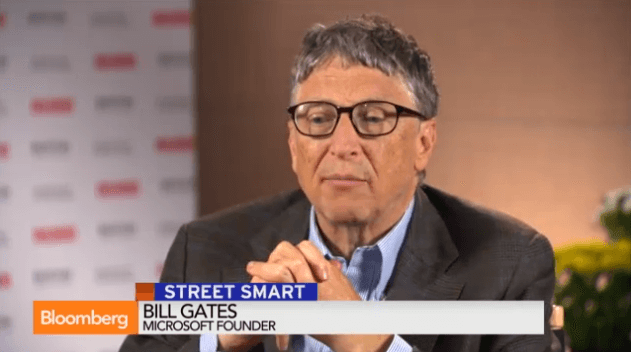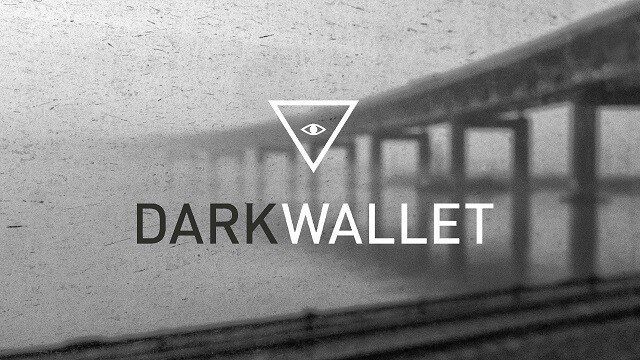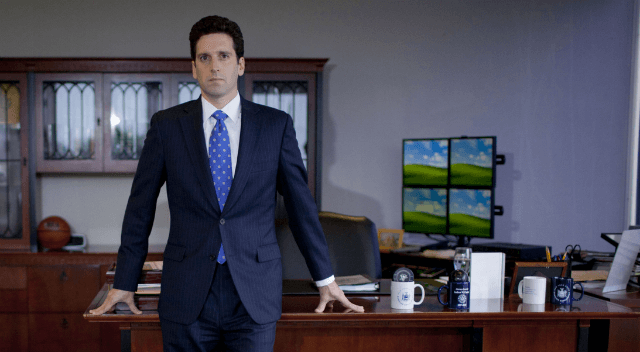One of the most influential tech visionaries of the computer age has given his blessing to Bitcoin and its underlying blockchain technology, though he holds some reservations about illicit uses of the system.
Bill Gates, famously the co-founder of Microsoft and the philanthropic Bill & Melinda Gates Foundation, did an interview with Bloomberg yesterday in which he discussed methods of bringing financial tools to the world’s unbanked population.
While it remains difficult for people in poor countries to set up and maintain bank accounts, advancements in the mobile phone space now allow those people to manage finances without needing a bank account at all.

“The need to move money from place to place, the cost of doing so — the overhead, as you put it — makes me think, believe it or not, of Bitcoin,” said Erik Schatzker during Bloomberg’s Street Smart segment. “Because some people have said ‘Hey, Bitcoin is the answer to those problems.’ Are you a believer?”
Well, Bitcoin is exciting because it shows how cheap it can be. Bitcoin is better than currency in that you don’t have to be physically in the same place and of course for large transactions currency can get pretty inconvenient.
– Bill Gates
Indeed, decentralized blockchain technology (which constitutes the heart of Bitcoin and other cryptocurrencies) allows the instant transfer of value using a trustless peer-to-peer network. Because there’s no company or organization tasked with managing these transactions, the system overall is much cheaper to operate than regular banks.
Adding “Enough Attribution” to Bitcoin
But another effect of this trustless system without overhead is that there’s no discrimination between transactions. Everything goes through — even those that would normally be deemed illegal. This feature has given rise to thriving online marketplaces where drugs and weapons are sold for bitcoin.
As Gates continued his answer, he made it clear that he’s not too keen on the darker aspects of digital currency.
The customers we’re talking about aren’t trying to be anonymous. You know they’re willing to be known, so the Bitcoin technology is key, and you could add to it or you could build a similar technology where there’s enough attribution that people feel comfortable that this is nothing to do with terrorism or any type of money laundering.
– Bill Gates
Here, Gates falls into a common misconception that Bitcoin is anonymous by design. In actuality, Bitcoin is pseudonymous — meaning transactions are recorded publicly in the blockchain, and can theoretically be tied to individuals through forensic analysis. This is why participants on dark net marketplaces are strongly encouraged to use coin-mixing services that can achieve a certain level of anonymity.

Nonetheless, Gates believes that Bitcoin’s pseudonymous nature is actually a bug, and not a feature. He’s right in that the people he’s trying to reach — the poor, unbanked populations of third-world countries — probably don’t care about linking their identities to their finances. They don’t have to worry about a powerful surveillance state that imprisons more people per capita than any nation in the world. While third-world governments are often corrupt, at least their corruption doesn’t extend to restricting the financial freedoms of their citizens. Therefore, people in these countries have little need for anonymity.
Based on this distinction, Gates is clearly angling for an alternative cryptocurrency that links a user’s identity to their money. He says that “Bitcoin technology is key,” but he really means blockchain technology is key. There are literally hundreds of different cryptocurrencies that use some form of a blockchain, and it’s not too far-fetched to imagine one that somehow ties balances and transactions to real-world identities.
Building Identities Atop Bitcoin
Gates does believe it’s possible to “add” to Bitcoin itself in order to link identities with their money. This could be achieved in various ways, including creating a specialized bitcoin wallet that verifies the user’s identity before use. Coinbase and PayPal are both in a position to do something like this, since they’re already highly compliant with state-enforced identity verification rules.
Another way to impose real-world identities onto bitcoin transactions would be to enact new, wide-ranging laws at a governmental level. This type of approach is already being attempted by New York’s Department of Financial Services, which wants to set in place BitLicense regulations for digital currency. Among other rules, it would require Bitcoin businesses in New York (and any businesses with customers in New York) to identify all of their clients and store extensive records of transactions.

Ultimately that strategy aims to marginalize, or outright imprison, those who seek to use Bitcoin for purposes vilified by the government — not just terrorism and money laundering (two vague terms which can be applied to relatively harmless activities), but also purchases of drugs and weapons, or donations to politically active groups such as Occupy or Wikileaks. For now, the BitLicense is being presented as a form of consumer protection, but its ultimate goal is the censorship of transactions deemed unethical by the government and people like Bill Gates.
It remains to be seen whether Gates, or Microsoft as a whole, will actually pursue such an identity-centric cryptocurrency system. It’s easy to start a new blockchain, but it’s not easy at all to make it successful. Gates’ best bet is probably to build his vision on top of Bitcoin itself, or simply let regulators in New York do all of the heavy lifting. In addition, Microsoft is pretty busy these days just trying to maintain its current market share, so excursions into cryptocurrency territory will likely remain limited to theoretical research papers.
Bill Gates is an extremely intelligent individual, and will probably figure out some way or another to provide basic money services to the world’s unbanked population. It could be in the form of a personal project with a small team, or through his philanthropic foundation. But it will almost certainly involve Bitcoin or another cryptocurrency, and hopefully it preserves some level of privacy for its users.

 No Comments
No Comments
